Safe Land, Sustainable Futures: Promoting Food Security Through Mine Clearance
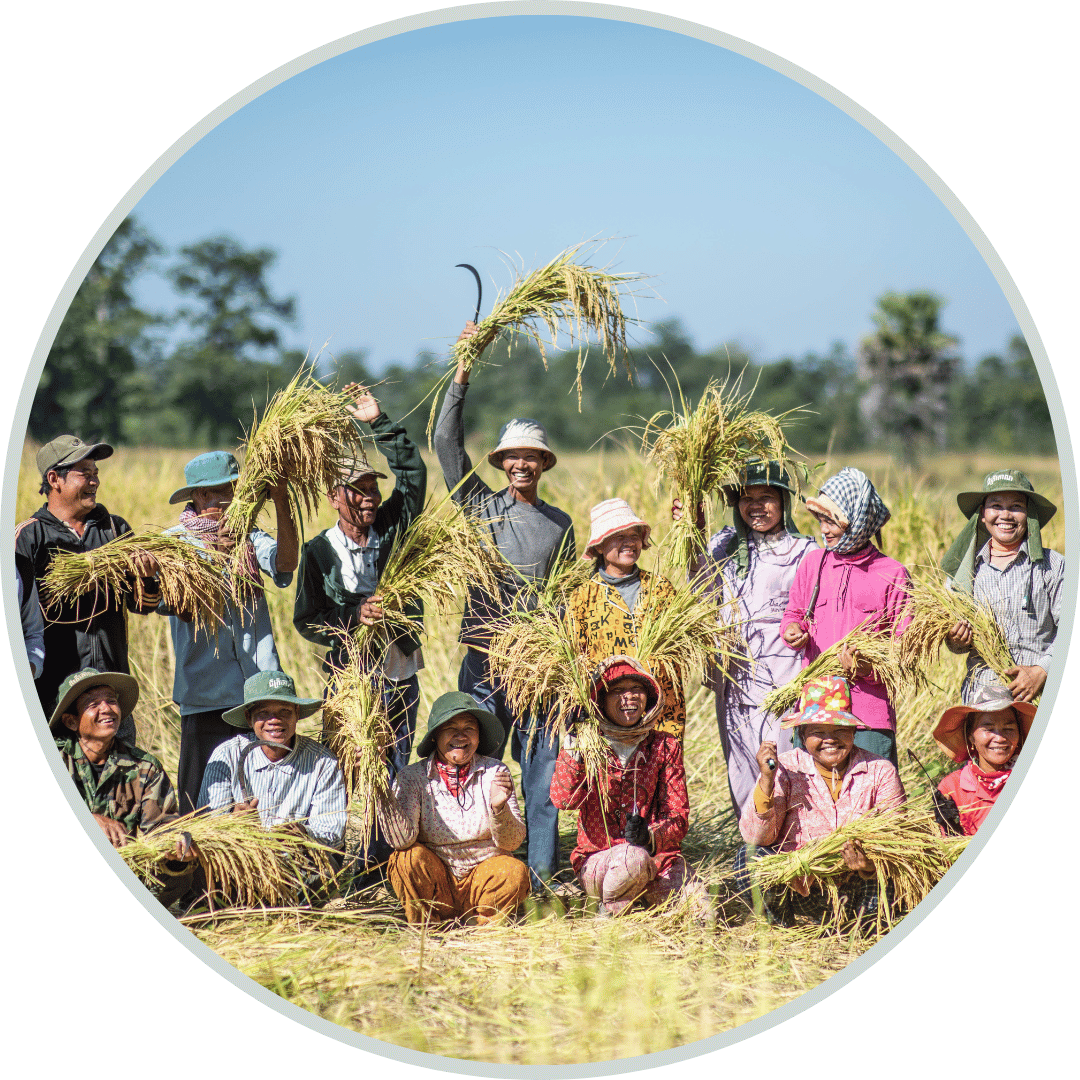
The non-profit organization APOPO deploys rats and dogs for mine detection to speed up the clearance of explosives. These animals have helped APOPO save thousands of lives by efficiently clearing and safely disposing of landmines and other explosive ordnances in former conflict zones. Farmers benefit from these lands, allowing them to safely produce food for their families. With support from Bayer Foundation, APOPO integrates mine action with agricultural development by adding an additional dog team in Cambodia.
Mine-affected land
Cambodia is one of the most mine-affected countries in the world, with an estimated 681 km² of its land still contaminated by explosives. This situation presents a significant humanitarian crisis, jeopardizing the safety of Cambodian citizens. To date, mine-related accidents have caused more than 64,000 casualties and more than 25,000 amputees, resulting in Cambodia having the highest ratio of mine amputees per capita in the world, This not only hampers development by restricting access to land, water, roads, and health services but also inflicts financial and emotional burdens on families caring for landmine victims.
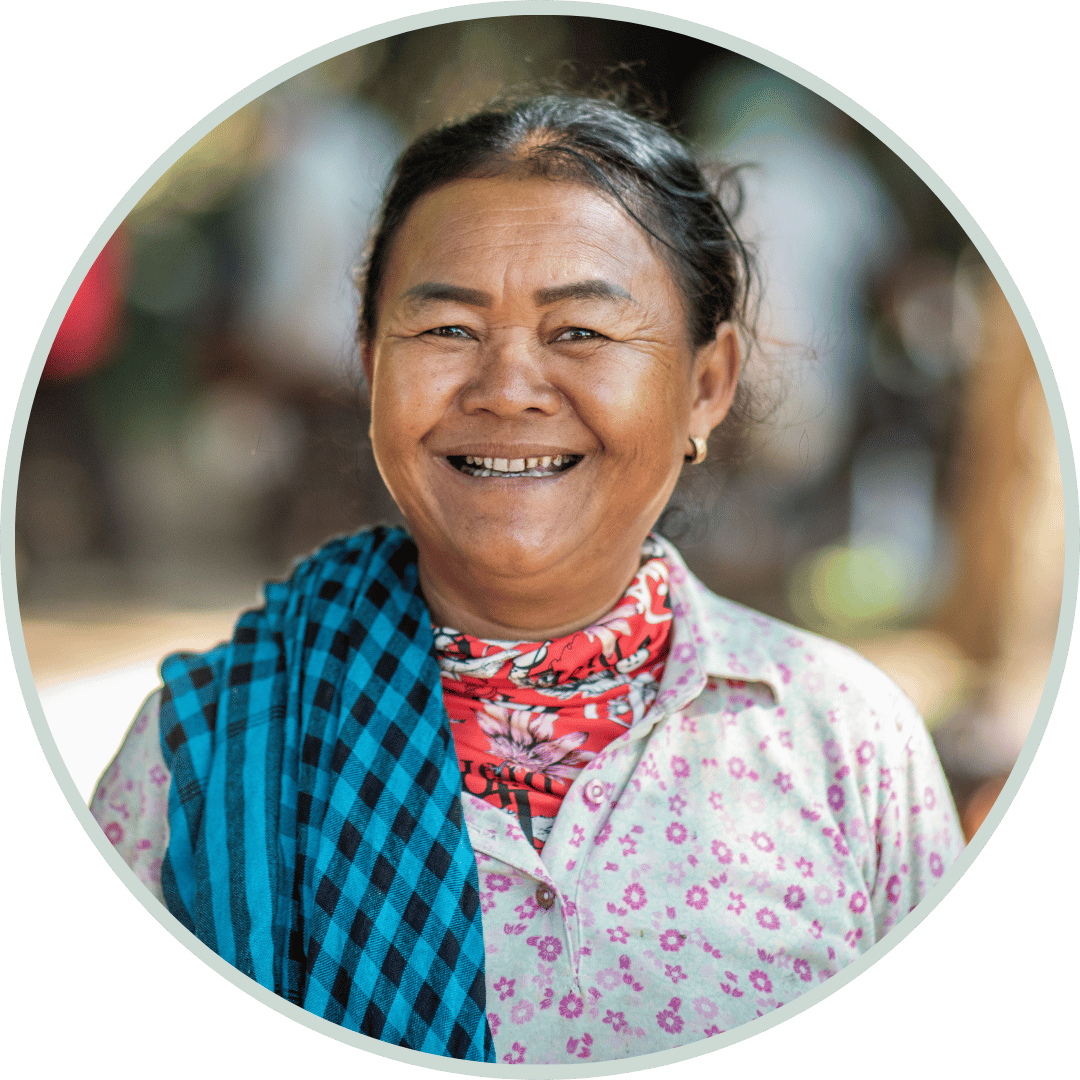
Rice farmer Salem and her husband own 15 hectares of land, of which 5 hectares were contaminated by landmines.
“My husband was always worried about my safety, especially after he found a landmine in our field while helping me plough in 2007. Fortunately, nothing happened, but we were very scared,” Salem recalls.
The presence of landmines also creates significant socioeconomic obstacles for farmers like Salem, as it restricts land use for vital economic activities like agriculture. In Cambodia, over 50% of households engage in agricultural production, with many being smallholder farmers who rely on farming both for income and subsistence.
Mine detection
The non-profit organization APOPO deploys rats and dogs for mine detection to speed up the clearance of explosives. These animals have helped APOPO save thousands of lives by efficiently clearing and safely disposing of landmines and other explosive ordnances in former conflict zones.
With support from Bayer Foundation, APOPO integrates mine action with agricultural development by adding an additional dog team in Cambodia.

“Thanks to their speed, dogs significantly reduce the time required to locate mines, allowing for greater safety and security for villages surrounding the minefields. The amazing olfactive and tracking abilities of the dogs make them invaluable for surveying mine-affected areas, enabling to assess quickly if a suspected land actually contains landmines. This system not only saves time and resources in vegetation clearing but also generates a survey map that allows for quicker land release decisions compared to traditional methods.”
Anna Bouchier, Director of APOPO Switzerland
Using this additional dog team, APOPO has started clearing some land, including Salem’s rice plots. “After the land was cleared of landmines, I felt much happier and no longer scared to work in the fields like before. I don’t worry anymore,” she tells.
By June 2025, this additional dog team will have cleared over 2000 hectares of land, ensuring that it is safe from landmines and other explosives. The cleared land will be fully allocated for agriculture and development, with 340 hectares designated for organic rice farming.
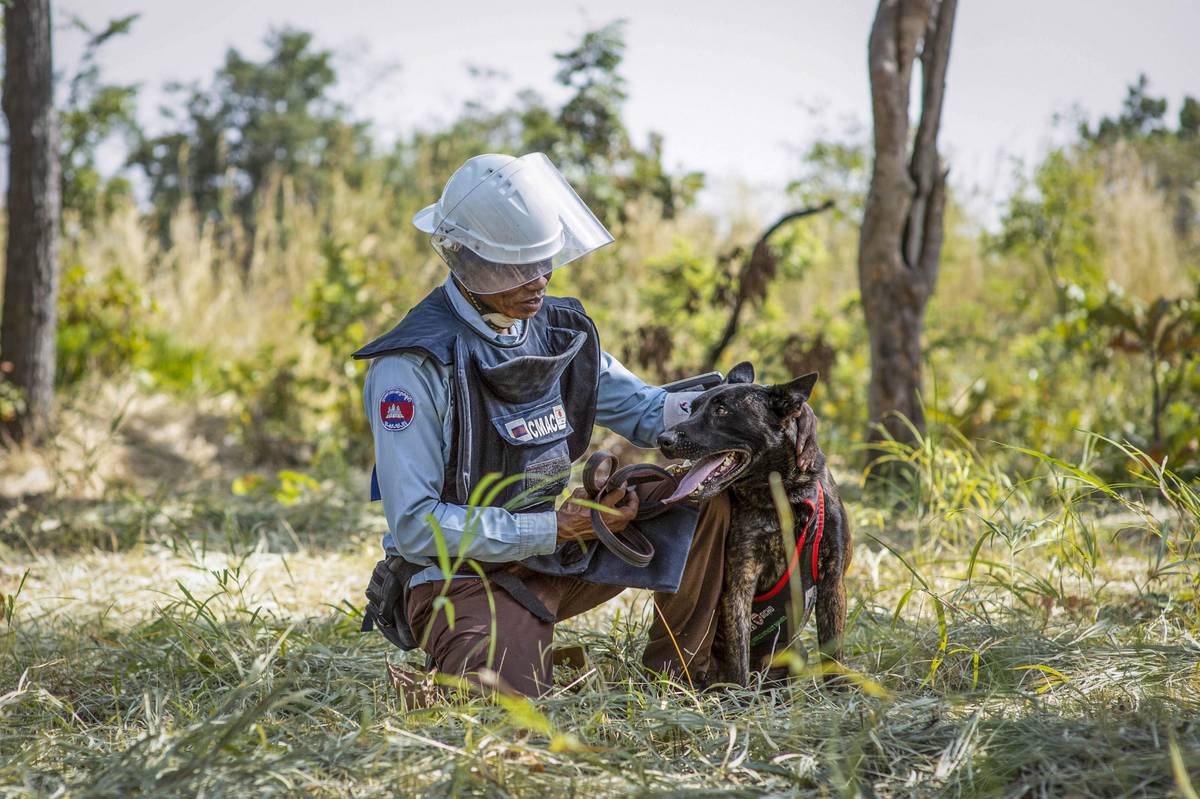
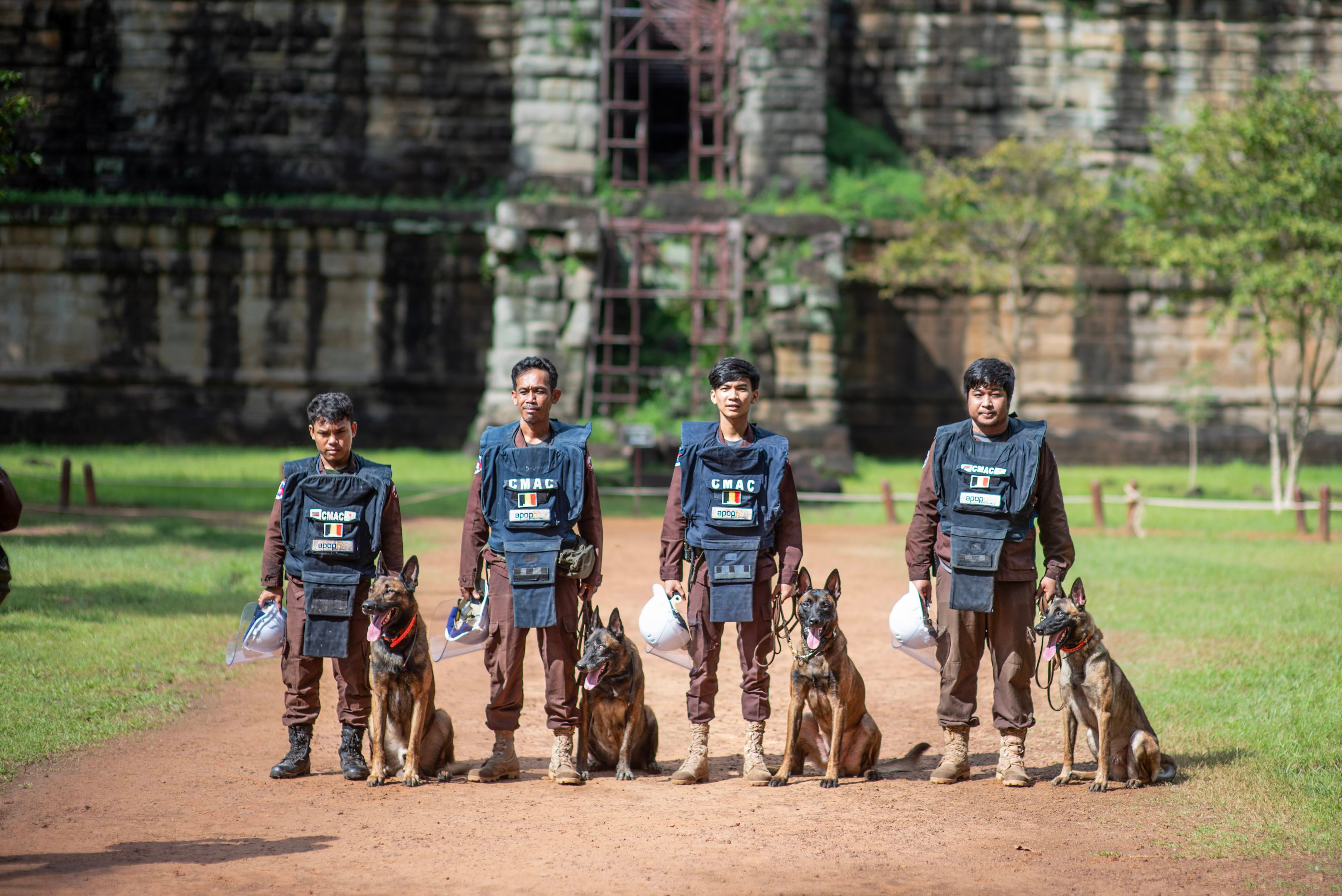
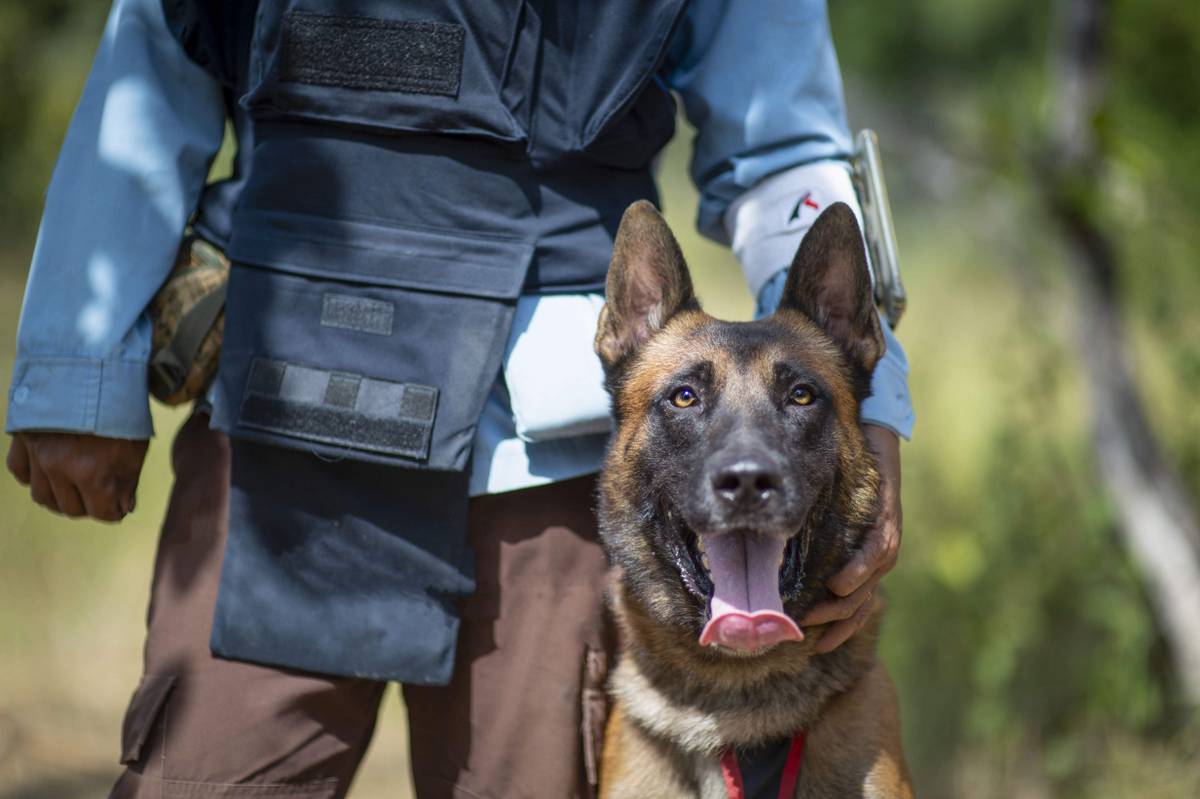
Selling surplus produce
“Households located 50 to 1,000 meters from hazardous areas will be able to cultivate crops and sell surplus produce at local markets and potentially to organic export dealers. Additionally, neighboring families will enjoy safe access to grazing and foraging areas. Foraging is a common practice in the region, with villagers frequently gathering mushrooms, small fruits, leaves, and honey, as well as hunting small animals,” Anna Bouchier adds.
Alongside these initiatives, 80% of smallholder farmers will receive training in agricultural best practices, with the project aiming for 70% of these farmers to achieve a 20 to 30% increase in net income.
APOPO remains committed to its risk education efforts, targeting 8,000 children with Explosive Ordnance Risk Education lessons in schools and villages within mine-affected communities. The organization will also assist 200 landmine victims in accessing rehabilitation services.
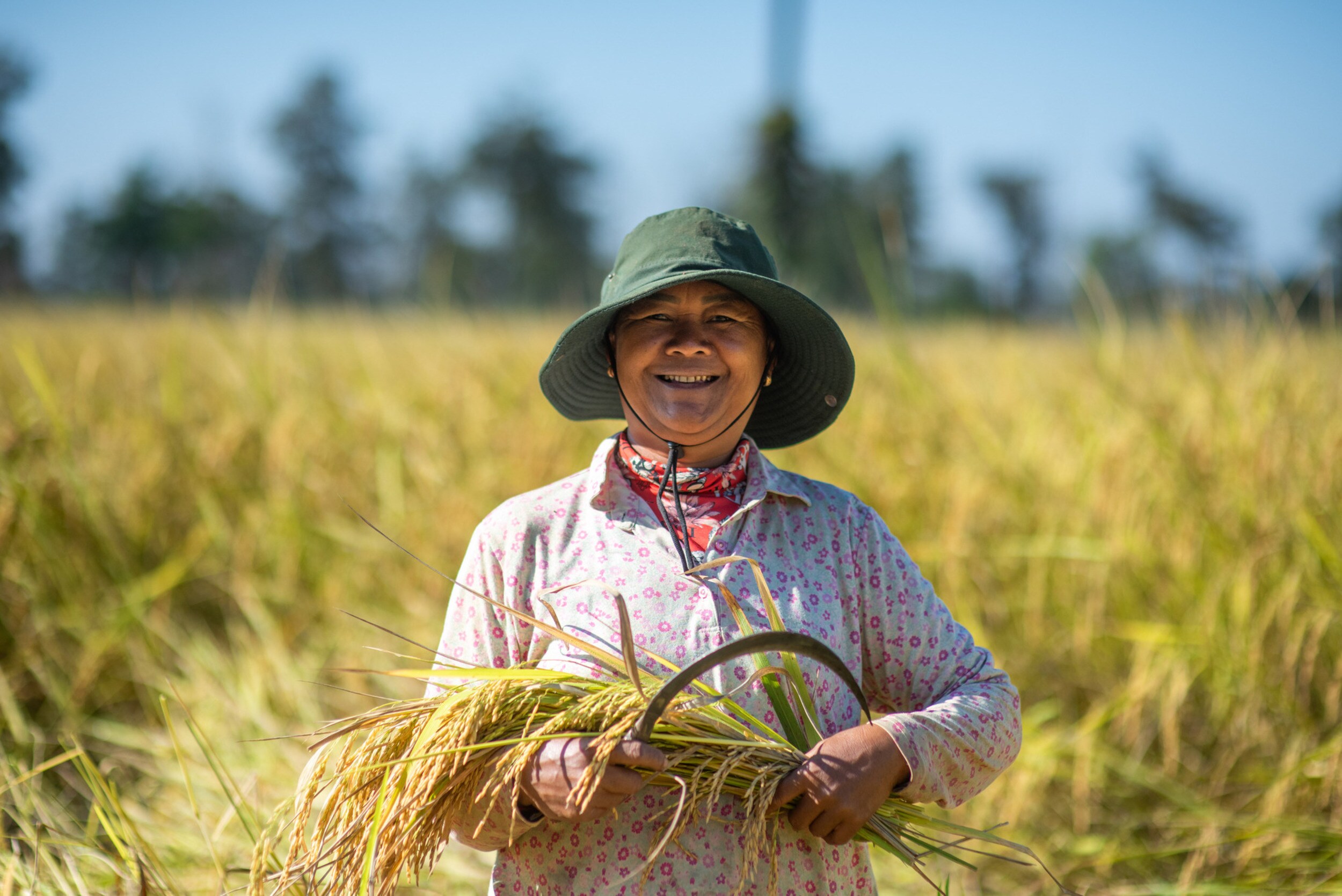


In total, APOPO and its partners are looking at directly impacting 10,000 people in the regions of Siem Reap, Preah Vihear, Battambang and Ratanakiri. 18,000 people will be indirectly impacted while using the land for access notably.
“APOPO has been increasingly looking beyond traditional mine action outputs, such as square meters cleared, to focus on the impact of demining. Thanks to the grant from Bayer Foundation, APOPO was able to work on safety, while also promoting the development of cleared lands, the increase in the income of farmers’ revenues and the security for themselves and their families,” Anna Bouchier adds.
For farmer Salem, the benefits of the project are clear: “The project removed the landmines, provided us with knowledge, and taught us how to stop using chemicals for fertilizers and pesticides. The project has had a big impact on my family and others in the community, and I hope more people will benefit from it in the future.”
Safe Land, Sustainable Futures: Promoting Food Security Through Mine Clearance



